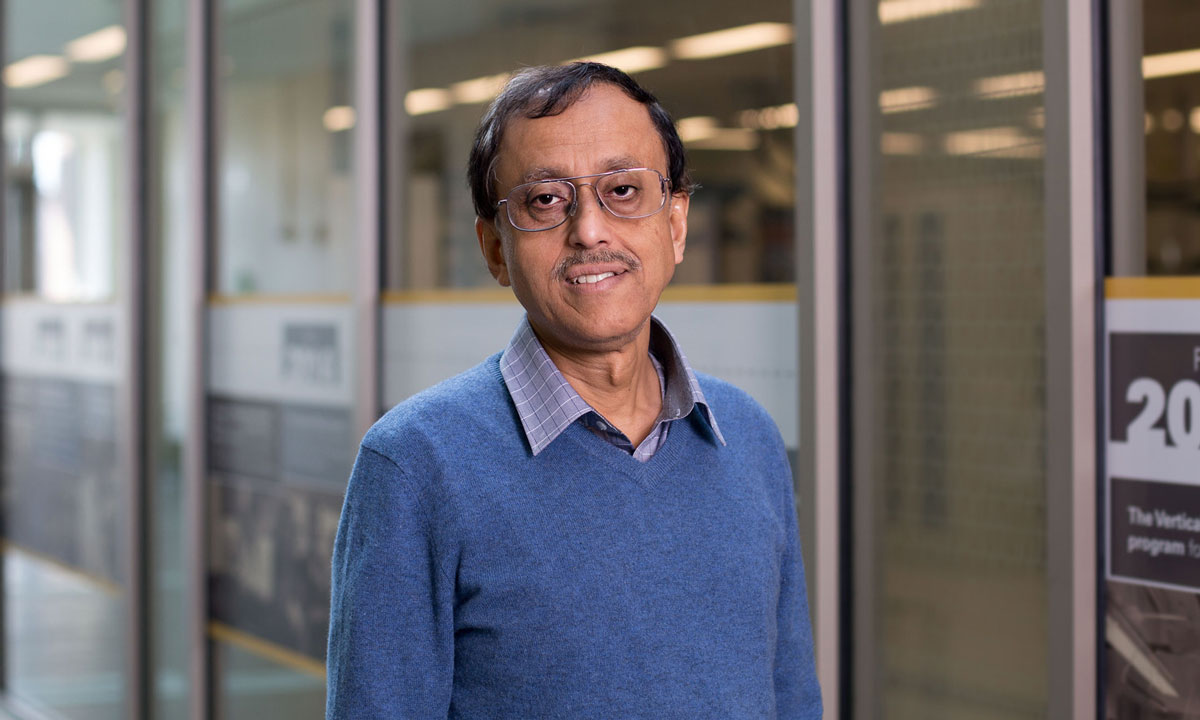USAID and National Academies appoint Supriyo Bandyopadhyay, Ph.D., as a Jefferson Science Fellow

The United States Agency for International Development (USAID) and the National Academies of Science, Engineering and Medicine have named Supriyo Bandyopadhyay, Ph.D., a Jefferson Science Fellow for 2020-21. Bandyopadhyay is Commonwealth Professor in VCU’s Department of Electrical and Computer Engineering.
The Jefferson Science Fellowship Program appoints leading researchers as advisers in the rapidly advancing science, technology, engineering and medical areas that impact U.S. foreign policy decisions. The U.S. Department of State and the National Academies established the program in 2003.
Bandyopadhyay and the other two Jefferson Science Fellows in this year’s class were officially inducted in a ceremony at the National Academies on August 17.
VCU president Michael Rao, Ph.D., nominated Bandyopadhyay for this post, calling him “a passionate scientist attuned to the societal role of science, an engaging speaker and a great communicator.”
Bandyopadhyay’s ability to “provide insight on critical scientific issues, engage with international leaders in scientific fields, help to frame policies and communicate to both laypersons and experts” also qualify him for the fellowship, Rao said.
As a Jefferson Fellow, Bandyopadhyay will provide expertise on policy matters regarding energy and infrastructure in the USAID Bureau for Europe and Eurasia. He will be based at the USAID’s Washington, D.C., headquarters, with the possibility of overseas travel for consulting projects.
“But I am still very much a VCU professor,” he said. “I will come back to Richmond on weekends and I remain very committed to my advisees and the work in my lab.”
Bandyopadhyay is a world-renowned expert and pioneer in spintronics, the science and technology of using the quantum mechanical spin of electrons to store, process, sense and communicate information. He is also one of the world’s leading researchers in electrochemical self-assembly. His scientific advances have been published widely in leading peer-reviewed journals and featured in science, engineering and business magazines, internet blogs, television, radio and newspapers.
A hallmark of his work is applying advanced technologies to expand infrastructure and digital access to impoverished populations. He is looking forward to building on that mission in his new role.
“This is a very different kind of job for a research professor,” he said. “It will involve a lot of training and immersion in policy, for example. It will be a new experience and a new challenge, and that’s good. I never want to risk becoming bored. I am always looking to do something new.”
Note: This story has been updated to reflect the final number of fellows.
Categories Electrical & Computer Engineering